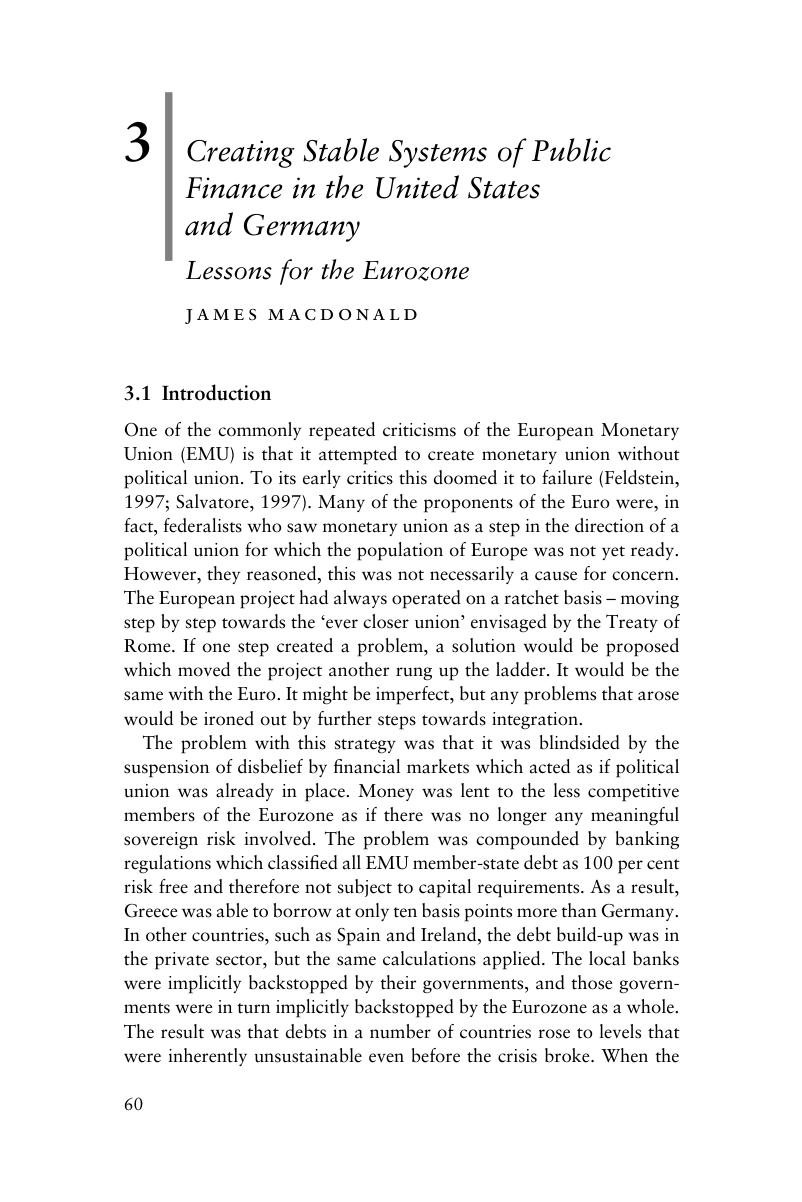Book contents
- The Political Economy of the Eurozone
- The Political Economy of the Eurozone
- Copyright page
- Contents
- Figures
- Tables
- Contributors
- Preface
- Acknowledgements
- 1 The Eurozone as a Political Economy Field
- Part I Comparative Historical and Institutional Perspectives
- 2 Fiscal States and Sovereign Debt Markets
- 3 Creating Stable Systems of Public Finance in the United States and Germany
- 4 A Historical Perspective on the European Crisis
- 5 Conditionality, Fiscal Rules and International Financial Control in the European Periphery before 1914
- 6 Snakes and Ladders
- Part II Multi-Level Interdependencies
- Part III Political Economy of Structural Governance
- Part IV Framing the Eurozone
- Index1
- Book part
- References
3 - Creating Stable Systems of Public Finance in the United States and Germany
Lessons for the Eurozone
from Part I - Comparative Historical and Institutional Perspectives
Published online by Cambridge University Press: 31 October 2017
- The Political Economy of the Eurozone
- The Political Economy of the Eurozone
- Copyright page
- Contents
- Figures
- Tables
- Contributors
- Preface
- Acknowledgements
- 1 The Eurozone as a Political Economy Field
- Part I Comparative Historical and Institutional Perspectives
- 2 Fiscal States and Sovereign Debt Markets
- 3 Creating Stable Systems of Public Finance in the United States and Germany
- 4 A Historical Perspective on the European Crisis
- 5 Conditionality, Fiscal Rules and International Financial Control in the European Periphery before 1914
- 6 Snakes and Ladders
- Part II Multi-Level Interdependencies
- Part III Political Economy of Structural Governance
- Part IV Framing the Eurozone
- Index1
- Book part
- References
Summary

- Type
- Chapter
- Information
- The Political Economy of the Eurozone , pp. 60 - 77Publisher: Cambridge University PressPrint publication year: 2017

